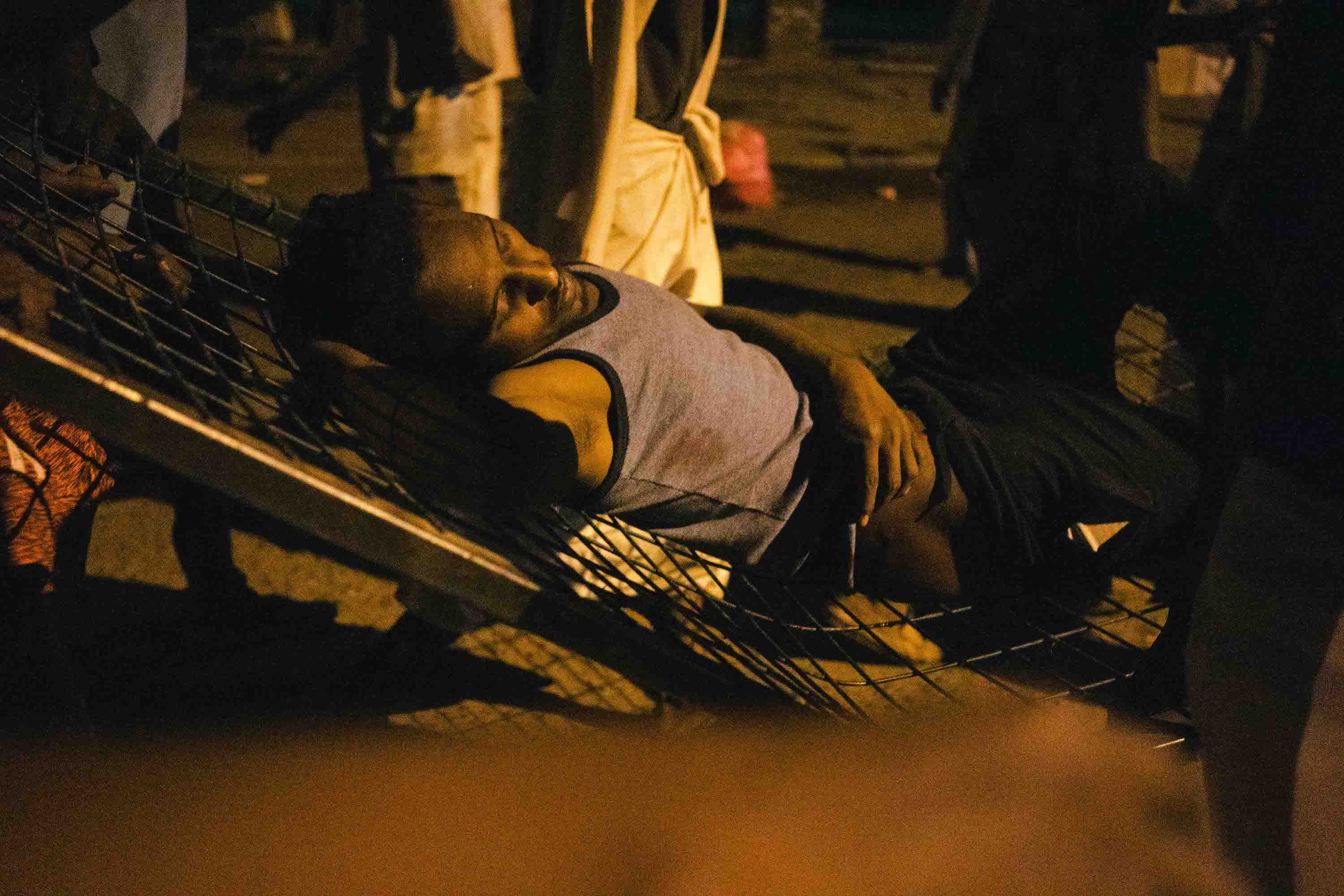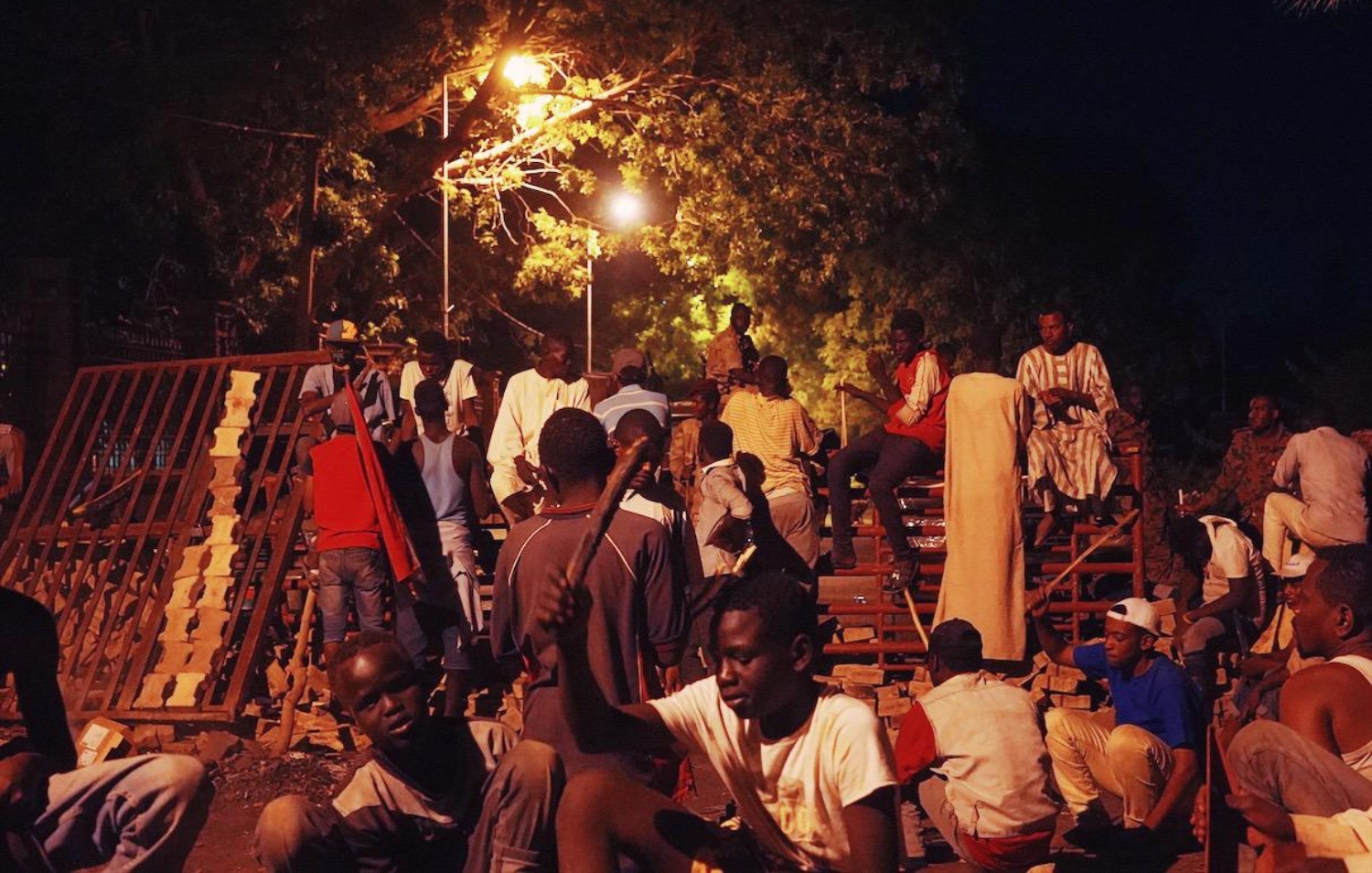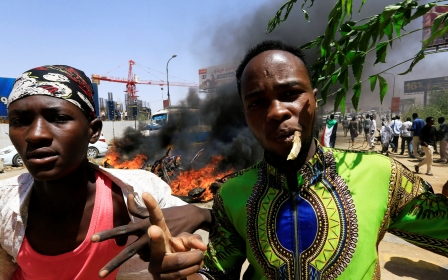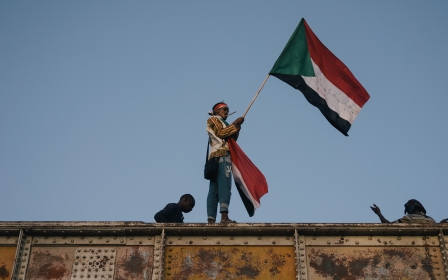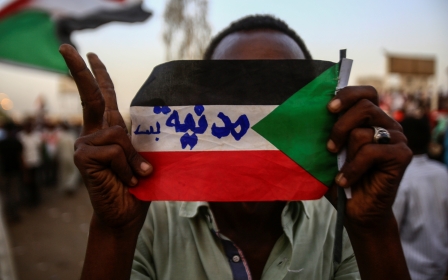Blood at the barricades: A night under attack at Sudan's sit-in
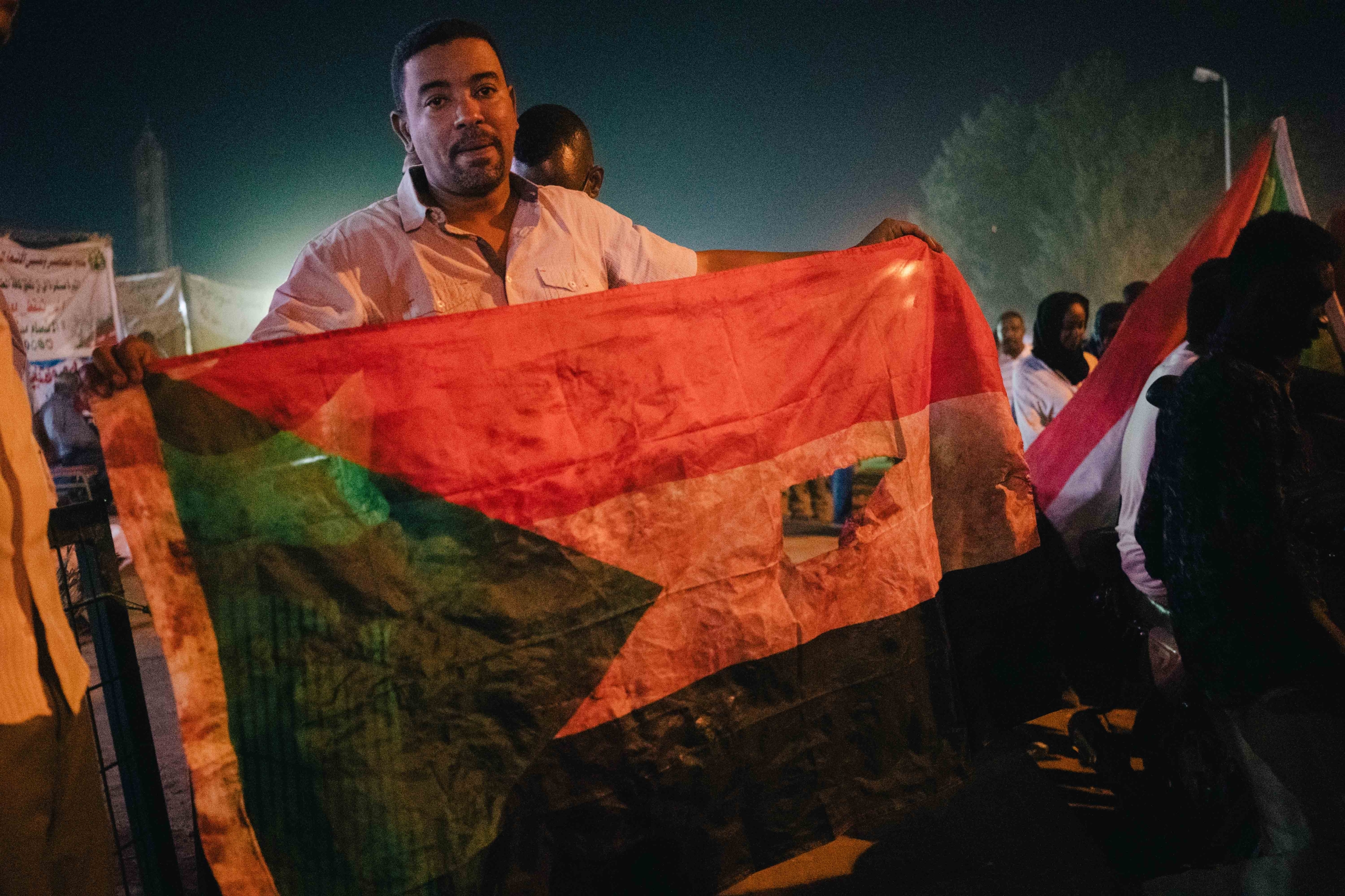
At first, the paramedics took a little over half an hour to carry through a dozen injured protesters. Then, the same number was rushed past in a matter of minutes.
The rattling sound of gunfire became louder, longer and more frequent over the course of Monday night in Khartoum, as a group of uniformed gunmen suddenly attacked the peaceful sit-in that for more than a month has been demanding that Sudan's military leadership hand power to civilians.
Incensed, groups of young boys ran towards the bullets, facing off with the gunmen at barricades they had built to guard their sit-in after similar attacks during its first days, before President Omar al-Bashir's 30-year reign came to an end.
When protesters ran out of stretchers to ferry the wounded, bleeding from bullet wounds to their heads and chests, they began ripping metal rails from the side of the street to serve as a crude alternative.
New MEE newsletter: Jerusalem Dispatch
Sign up to get the latest insights and analysis on Israel-Palestine, alongside Turkey Unpacked and other MEE newsletters
At the field clinics that received the injured, they lay splayed out on old sofa cushions repurposed as hospital beds, connected to drips. A doctor, who requested anonymity, said there was neither the staff, equipment nor the blood supplies to deal with the casualties.
“We received more than 100 injured in only half an hour and we referred the serious cases to the nearest hospitals for more medical care, but some of them passed away,” the doctor told Middle East Eye.
At least six people were killed in the attack, according to the Sudanese Doctors Committee, which is part of the Sudanese Professionals Association (SPA), one of the groups leading the revolutionary movement.
The shooting started along Nile Street, north of the sit-in, as protesters broke their fast at sunset as part of the Muslim holy month of Ramadan. Before Monday's night of violence, tensions had already been high, as protesters have tried to increase pressure on the ruling Transitional Military Council (TMC) to make concessions by blocking the major thoroughfare.
But by 11pm, the attack was coming from at least three directions, confusing the youth trying to face it down and leaving many of the families inside the sit-in feeling locked in.
But other demonstrators also joined throughout the night, walking or jumping into pick-up trucks that raced to the protest. Many dug bricks out of the pavements to use as material for new barricades to ensure military vehicles could not approach the sit-in. By the morning, new barricades had mushroomed along Nile Street, some as close as 400 metres from the presidential palace.
The protesters have blamed the Rapid Support Forces, a paramilitary led by the ruling military council's deputy leader Mohammed Hamdan, known as Hemeti, whose uniforms were worn by the gunmen.
Hemeti has positioned himself as a supporter of the protests but is seen with suspicion by many Sudanese because he was a key figure in the pro-regime Janjaweed militias accused of genocide in Sudan's western Darfur region. After the protests against Bashir began in December, his RSF forces, which grew out of the Janjaweed, were frequently reported as involved in the crackdowns that followed.
In an overnight press conference delivered by the TMC, the RSF denied any involvement. The council accused "lurking groups" of carrying out the attack to derail talks with the protest leaders.
But at the sit-in, protesters scoffed at the explanation - they wanted to know why the army had not intervened against the gunmen if it was indeed uninvolved in the shooting.
"That army speech overnight has angered everyone, because they told us that they don’t care about the lives of the civilians," protester Widaad Hamid told MEE. "So the protests will continue.”
Middle East Eye delivers independent and unrivalled coverage and analysis of the Middle East, North Africa and beyond. To learn more about republishing this content and the associated fees, please fill out this form. More about MEE can be found here.


